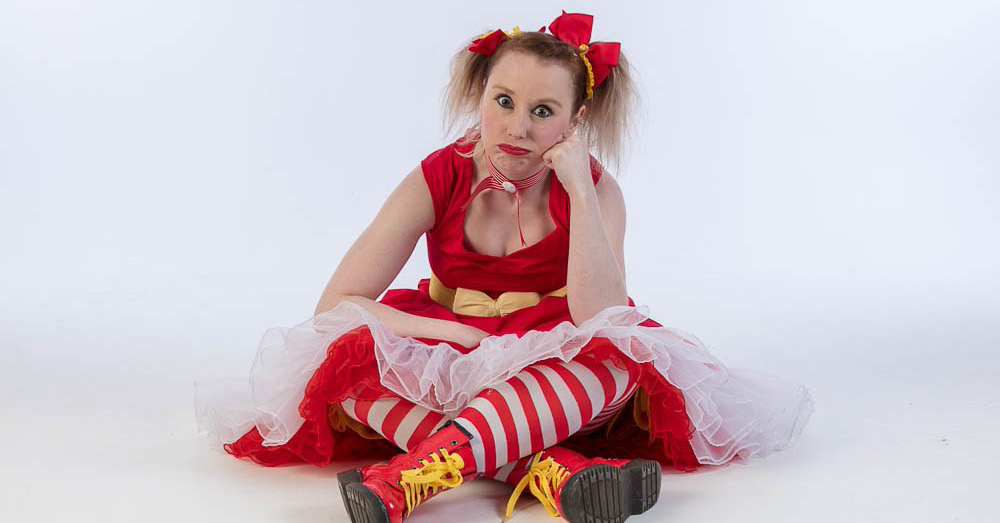Needs must when the devil drives…

When you are invited to perform at a birthday party with 30 children attending including the birthday child, the attention and focus you can dedicate to each child is slightly stretched. You may wish to give your time to everyone but it is simply not possible. Then throw into the mix the possibility that some children react differently to watching your show. The room might get too loud for a particular child, and you have to deal with their reaction before continuing the performance.
※
I am no expert and am forever learning at every event I perform at. Tonight was no exception. At this particular party the mother advised me before coming that the birthday girls sister wished to be a part if the show and (so that I was aware) was autistic. Even though it wasn’t her birthday, she asked me would I mind getting her involved too. I personally don’t use siblings of the birthday child in my shows unless I have too. I beleive it is vital that the actual birthday child’s friends get up to help in the show. I do make exceptions when parents request it, and it was for good reason in this particular case as the birthday child’s sister might be very upset from not being in the show and not understand why. For good reason, under these circumstances I acquiesce.
Awareness is key
It’s essential when you meet children to assess them for capability, temperament and above all do not judge them by what adults advise you. Listen to what they have to say and be aware of it but don’t let it influence your performance. Adults have their children’s best interest at heart. However, when you are performing with a child on stage the reaction they have to being with you will tell you how you need to look after them on stage. It is our job as performers to make sure that when any child comes up to help that it is the best experience they will have on stage at that moment. Parents may warn you that their child is shy and won’t want to help you and then they burst onto the stage glowing with confidence. You really just won’t know how a child will react until they are up there with you.
※
I knew right away after meeting the birthday girls sister that my middle trick would not be the best one for her to perform. This trick in my show is a complicated effect. There are a lot of instructions in a short space of time and although lots of fun my gut told me it wasn’t right for this child right now. My very last trick however is more relaxed, has an easy story to follow – the child becomes a gladiator and uses a magical sword to make the hanky of doom vanish. – and I felt much more comfortable guiding the birthday child’s sister through this particular effect.
⁂
After taking the time to get the birthday girls sister settled and comfortable with the task at hand, something very unexpected happened. I chose another child to help, whom I didn’t realise until I brought them up that they were for the most part non verbal and very sensitive to their surroundings. As soon as I handed them the hanky, it took a moment for me clock this, react and take my time to make them comfortable enough to stay up and help. Eye contact, reassurance and staying calm yourself are three great tools that aid this.
Is it best to chose the easy option?
Looking back on this situation, I could have easily plotted a story line that encouraged that child to sit back down and take someone else up, as she was very tentative and on the verge of sitting down herself anyway. As you can imagine, having two children on stage with varying abilities is a challenge for any performer, especially whilst trying to keep the attention of a large group.
※
However, I have a rule. I always make sure I ask children twice if they wish to come and stay to help me. The first time, when they are sitting down on the floor, which they bounce on stage too. The second time, if I feel and see them responding awkwardly to being up on stage with me. Asking for the second time reassures me and them that they are indeed happy to assist. Everyone must be happy to take part, especially your assistants, no matter what age.
It’s my party and ill cry if I want to!
On that note if during a trick a child gets upset or no longer wishes to partake in the trick you are performing, try to send them down to their seat in a positive way. Thank them for helping and ask for a round of applause. I always keep an eye on the child for the rest of the trick and show. This moment can be horrible for a child. They don’t want to not help with the trick, but at that moment they just can’t cope to finish it. It us important that you deal with their dismissal and the aftermath of this delicately.
※
Next you will need to request a new helper. That child knows they are a substitute but willing to finish what the other child began. If there is anyway to end the trick with both children (the replacement up with you and the child sent down) do. I.e: Say to the child on the floor that even though you are now down there I still need your help, we cant do this without you. Somehow reaffirm that they are special in making the trick work. The difference you will make to that child for the next time they have to go onstage and help someone will be huge. They will not feel like they have failed but overcome something.
Back to the party…
The mother of the non verbal child was even worried for me, moving closer to the stage and her child just incase her child needed assistance. Turns out they didn’t. Yes the trick took longer to perform, yes the audience were not under control by the end and it was not a perfect version of this particular trick but I took my time and guided both these children with complex needs through the trick to the end. No tears, no tantrums just smiles and hugs after. Helping everyone to be involved for me is more important than you, the magic or your show.
※
And this is the beauty in what we get to do. No show is like the other. Every child and party is different. You are different each show. Strive to throw your perceptions of the perfect show out the window if needed in order to help children have their moment on stage to shine. They may not ever think they could and you will have went a long way to making real magic happen for them and their parents in seeing their child thrive in an environment they never knew they could.

I say this every time I hear one of your stories, but its true every time: I am pretty sure I could not do what you do. Not with the same care, tact and decorum nor with the energy and connection to the audience that you establish.
It is seriously impressive to get an insight into what your internal dialogue is like in situations like these.
Thank you my friend, I just try to put myself and their shoes and wonder how I would react and deal with these situations if I were watching my show. Becoming one of them helps greatly.